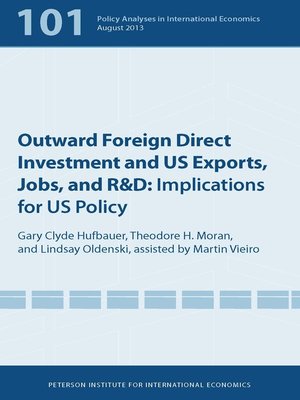Outward Foreign Direct Investment and US Exports, Jobs, and R&D
ebook ∣ Implications for US Policy · Policy Analyses in International Economics
By Gary Clyde Hufbauer

Sign up to save your library
With an OverDrive account, you can save your favorite libraries for at-a-glance information about availability. Find out more about OverDrive accounts.
Find this title in Libby, the library reading app by OverDrive.



Search for a digital library with this title
Title found at these libraries:
| Library Name | Distance |
|---|---|
| Loading... |
It is not in the US interest to adopt tax and regulatory policies that would discourage global engagement by US multinational corporations (MNCs). Research presented in this book shows that the expansion of foreign affiliates of US MNCs is positively associated with more production, greater employment, higher exports, and more research and development (R&D) in the United States. These findings suggest that less investment abroad by US firms would weaken—not strengthen—the US economy. This analysis by no means implies that there are only winners and no losers from outward investment. Changing patterns of MNC investment, like changing patterns of technology and production more generally, contribute to job losses and dislocations for some workers and to new opportunities for others. To benefit the US economy and US workers most broadly, the United States will want to search for ways to strengthen the appeal of the United States as a base for the operations of international firms. High among the recommendations to accomplish this, the United States should adopt a territorial tax system, like the great majority of developed countries.







